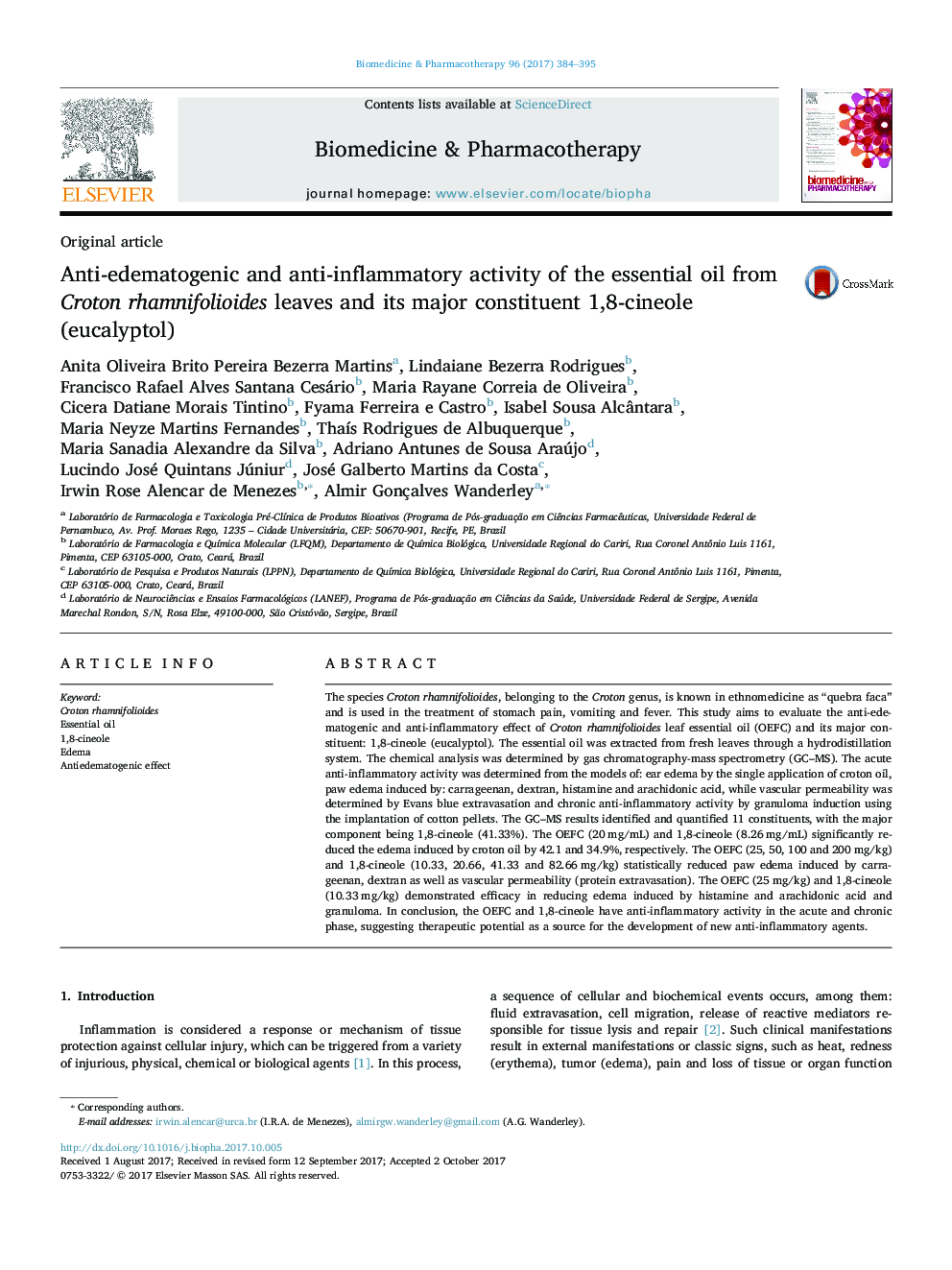| Article ID | Journal | Published Year | Pages | File Type |
|---|---|---|---|---|
| 5552460 | Biomedicine & Pharmacotherapy | 2017 | 12 Pages |
The species Croton rhamnifolioides, belonging to the Croton genus, is known in ethnomedicine as “quebra faca” and is used in the treatment of stomach pain, vomiting and fever. This study aims to evaluate the anti-edematogenic and anti-inflammatory effect of Croton rhamnifolioides leaf essential oil (OEFC) and its major constituent: 1,8-cineole (eucalyptol). The essential oil was extracted from fresh leaves through a hydrodistillation system. The chemical analysis was determined by gas chromatography-mass spectrometry (GC-MS). The acute anti-inflammatory activity was determined from the models of: ear edema by the single application of croton oil, paw edema induced by: carrageenan, dextran, histamine and arachidonic acid, while vascular permeability was determined by Evans blue extravasation and chronic anti-inflammatory activity by granuloma induction using the implantation of cotton pellets. The GC-MS results identified and quantified 11 constituents, with the major component being 1,8-cineole (41.33%). The OEFC (20Â mg/mL) and 1,8-cineole (8.26Â mg/mL) significantly reduced the edema induced by croton oil by 42.1 and 34.9%, respectively. The OEFC (25, 50, 100 and 200Â mg/kg) and 1,8-cineole (10.33, 20.66, 41.33 and 82.66Â mg/kg) statistically reduced paw edema induced by carrageenan, dextran as well as vascular permeability (protein extravasation). The OEFC (25Â mg/kg) and 1,8-cineole (10.33Â mg/kg) demonstrated efficacy in reducing edema induced by histamine and arachidonic acid and granuloma. In conclusion, the OEFC and 1,8-cineole have anti-inflammatory activity in the acute and chronic phase, suggesting therapeutic potential as a source for the development of new anti-inflammatory agents.
